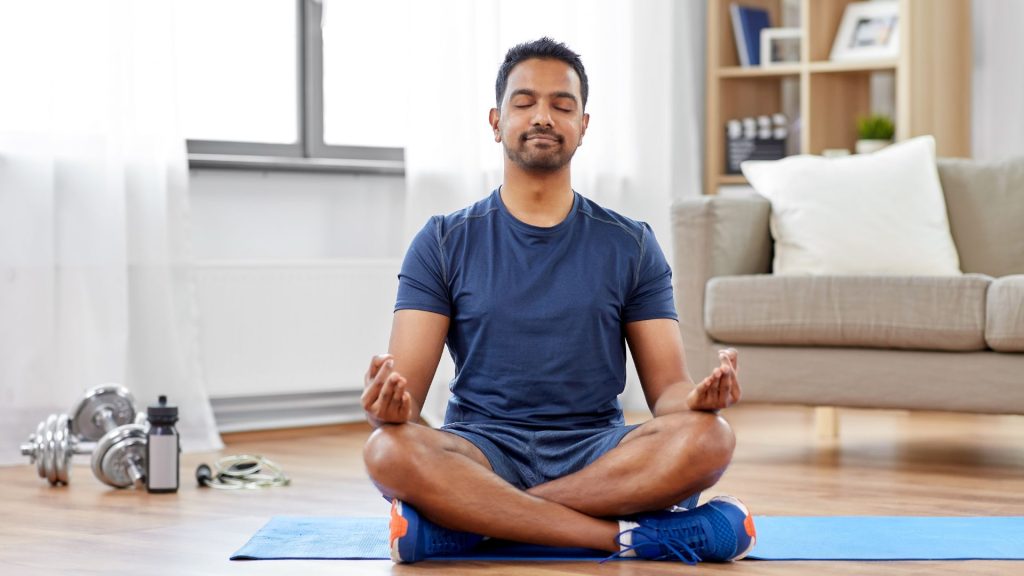Introduction: Why Mindfulness Matters in Sports
The world of sports is a high-pressure environment where athletes constantly push their physical and mental limits. The relentless pursuit of victory can often lead to stress, anxiety, and burnout. In this fast-paced world, mindfulness offers a powerful tool to enhance performance, improve mental well-being, and foster a more fulfilling athletic experience.
What is mindfulness? Mindfulness is the practice of being fully present in the moment, without judgment. It involves paying attention to your thoughts, feelings, and sensations without getting caught up in them.
The pressure cooker of competitive sports As an athlete, you’re constantly striving for perfection. Every practice, every game, every race is an opportunity to prove yourself. This pressure can be overwhelming, leading to anxiety, self-doubt, and even physical ailments.
The impact of mindfulness on athletic performance Numerous studies have shown that mindfulness can significantly improve athletic performance. By reducing stress and anxiety, mindfulness helps athletes stay calm and focused under pressure. It enhances concentration, decision-making, and overall mental clarity. Additionally, mindfulness can boost physical performance by optimizing energy levels and reducing fatigue.
Building a Foundation of Mindfulness
Understanding the wandering mind Our minds are constantly racing, jumping from thought to thought. This constant mental chatter can be distracting and overwhelming, especially during training or competition.
The benefits of mindfulness for athletes By cultivating mindfulness, athletes can learn to observe their thoughts without getting caught up in them. This allows for a greater sense of control and focus. Regular mindfulness practice can lead to a number of benefits, including:
- Improved focus and concentration
- Enhanced emotional regulation
- Increased self-awareness
- Reduced stress and anxiety
- Better sleep quality
- Enhanced physical performance
The benefits of mindfulness for coaches Coaches play a crucial role in shaping the mindset of their athletes. By incorporating mindfulness into their own lives and coaching practices, coaches can create a more supportive and positive training environment. Mindfulness can help coaches:
- Communicate more effectively
- Make better decisions under pressure
- Build stronger relationships with athletes
- Foster a culture of resilience and perseverance
Mindfulness in Action: Training and Competition
Pre-competition jitters: Managing performance anxiety Performance anxiety can be a major obstacle for athletes. By practicing mindfulness, athletes can learn to manage their anxiety and channel their nervous energy into positive focus.
Staying focused during training sessions It’s easy to get distracted during training sessions. Mindfulness can help athletes stay focused on the task at hand, improving their practice quality and overall performance.
Maintaining composure under pressure In high-pressure situations, it’s easy to lose composure. Mindfulness can help athletes stay calm and collected, even when the stakes are high.
Cultivating self-compassion after setbacks Setbacks are a natural part of the athletic journey. Mindfulness can help athletes develop a greater sense of self-compassion, allowing them to learn from their mistakes and move forward.
Mindfulness for Coaches: Fostering Team Success
Leading by example: The coach’s role in cultivating mindfulness As a coach, you set the tone for your team. By incorporating mindfulness into your own life, you can create a more positive and supportive training environment.
Creating a mindful training environment A mindful training environment is one where athletes feel safe, respected, and supported. By encouraging open communication, active listening, and empathy, coaches can foster a sense of belonging and camaraderie.
Mindfulness techniques for communication and feedback Mindful communication involves speaking and listening with intention. By paying attention to your words and tone, you can create a more positive and productive communication style.
Building mental resilience in athletes Mental resilience is the ability to bounce back from adversity. By teaching athletes mindfulness techniques, coaches can help them develop the mental toughness needed to succeed.
Integrating Mindfulness into Your Training Regimen
Creating a personalized mindfulness practice To integrate mindfulness into your training regimen, it’s important to create a personalized practice that works for you. Start by setting aside a few minutes each day to meditate or practice mindfulness techniques.
Addressing common challenges It’s common to face challenges when starting a mindfulness practice. Some common challenges include:
- Lack of time: Even a few minutes of mindfulness practice can make a difference.
- Restlessness: It’s natural for the mind to wander. Gently bring your attention back to the present moment.
- Self-doubt: Don’t be too hard on yourself. Mindfulness is a skill that takes time to develop.
Resources for athletes and coaches There are many resources available to help athletes and coaches learn more about mindfulness. These include books, apps, and online courses.
Conclusion: The Road to Peak Performance
By incorporating mindfulness into your training regimen, you can enhance your athletic performance, improve your mental well-being, and cultivate a greater sense of fulfillment. Remember, the journey to peak performance is not just about physical training; it’s also about mental and emotional well-being.
FAQs
- How long does it take to see results from mindfulness practice? The benefits of mindfulness can be experienced relatively quickly, even with just a few minutes of practice each day. However, consistent practice is key to reaping the full rewards.
- Can mindfulness help with specific sports performance issues, such as shooting accuracy or swing mechanics? While mindfulness won’t directly improve physical skills, it can enhance focus, reduce anxiety, and improve decision-making, all of which can positively impact athletic performance.
- How can I incorporate mindfulness into my busy schedule? Start small by incorporating mindfulness into daily activities, such as mindful breathing during warm-up or focusing on your senses during a meal.
- Are there any specific mindfulness techniques that are particularly beneficial for athletes? Mindfulness techniques like meditation, body scan meditation, and breathwork can all be beneficial for athletes. Experiment with different techniques to find what works best for you.
- How can coaches create a mindful team culture? Coaches can create a mindful team culture by leading by example, encouraging open communication, and incorporating mindfulness practices into team meetings and training sessions.












